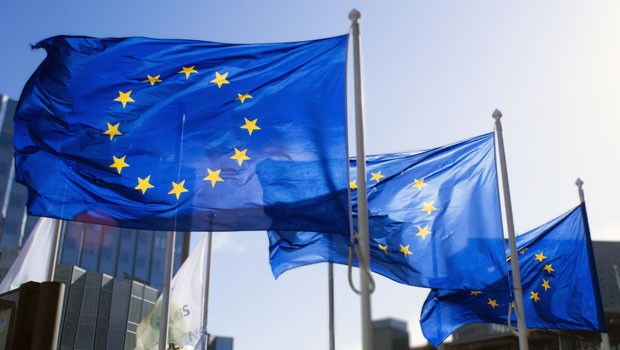Eurozone economy stalls in July

The eurozone economy stalled in July as demand for goods and services deteriorated, according to a survey released on Monday.
The HCOB composite PMI output index fell to a five-month low 50.2 from 50.9 in June. A reading above 50.0 indicates expansion, while a reading below signals contraction.
Meanwhile, the services PMI business activity index printed at 51.9 in July, down from 52.8 a month earlier and marking a four-month low.
Dr. Cyrus de la Rubia, chief economist at Hamburg Commercial Bank, said: "The eurozone’s economy is growing at a snail's pace in July. Sector-wise, services is not picking up speed like it did earlier in the year, while the industrial slump has continued unabated. Because of this, the HCOB composite output PMI is just hovering above the expansion line. So, while the second half of the year started off pretty weak, the PMIs and the official numbers for economic growth in the second quarter were surprisingly good. Given this situation, our 0.7% growth forecast for the year is still conservative.
"You cannot miss the slowdown in the service sector. The PMI has dropped for three months straight to 51.9, companies have been more hesitant about hiring, and new business is barely ticking up. The extraordinary effects from the European Football Championships in Germany, the Olympics in France, and Taylor Swift's concert tour in Europe are winding down too. So, the service sector probably won't give us much of a boost in the second half of the year."
Separately, the eurozone Sentix index showed that investor sentiment deteriorated for the second month in a row in August.
The overall index for the euro area fell to -13.9 in August from -7.3 in July. This marked the weakest reading since January.
The index for the assessment of the current situation fell to -19.0 from -15.8 and the expectations index came in at -8.8 in August versus 1.5 in July.
Sentix said that after the "severe setback in July, August has now come as a bitter pill for the economy in the eurozone".
"The already tired recovery path has finally come to an end and the consensus is completely surprised by the dynamics of the slump," it added.
The survey found that investors were particularly concerned about the fragile geopolitical situation, especially in the Middle East. "However, the upcoming elections, especially in Germany (state elections) and the USA (US presidential elections), are also coming into focus," it said.
"The uncertainty surrounding the outcome of the elections is creating a kind of vacuum, especially as the slowdown in the US economy is also accelerating and spreading to the rest of the world."